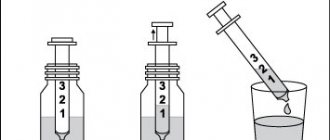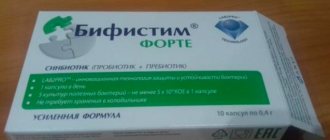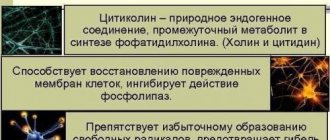Pharmacodynamics
Increases nonspecific resistance, activates macrophages and granulocytes, enhances phagocytosis. The release of cytokines leads to proliferation and stimulation of immunocompetent cells. The content of properdin in the blood serum increases. Some substances contained in echinacea extract have been found to have antiviral activity against influenza and herpes viruses, as well as an inhibitory effect on tissue and bacterial hyaluronidase. Increases the body's resistance to viral, bacterial and fungal infections.
Indications for use
Echinacea, due to its healing properties, is often compared to ginseng, as a result of which the flower began to be called “the plant of 1000 diseases.” The flowering plant is also called “blood cleaner.”
Medicines made from this flower are used for a wide variety of ailments:
- Viral and infectious diseases. The plant is taken for colds, ARVI, flu, herpes, and meningococcal infections.
- Ear, throat, nose. Used for tonsillitis, otitis, sore throat, stomatitis, sinusitis, periodontal disease.
- Respiratory system. For bronchitis, cough, pneumonia, bronchial asthma.
- Skin diseases. Furunculosis, eczema, psoriasis, dermatitis, purulent ulcers, fistulas, burns. Ointments are effective for acne and purulent rashes.
- Urinary system. Echinacea is taken for cystitis and inflammation of the renal pelvis. It is also effective for the treatment of diseases such as gonorrhea, syphilis, chlamydia. Thanks to the flower, men solve problems with adenoma and prostatitis. Women – with inflammation of the appendages and ovaries.
- Gastrointestinal tract. Medicinal flower, treats ulcers, gastritis and constipation. For hepatitis, echinacea is part of a comprehensive treatment.
- CNS. Neuroses, depression, neurasthenia.
- Oncology. The flower, in complex treatment, prevents the development of a malignant tumor.
- As a preventive measure, the plant is used by people living in environmentally polluted regions and working in hazardous enterprises. It will also help reduce the level of radiation for people undergoing chemotherapy.
Contraindications
hypersensitivity to Echinacea purpurea, to other plants of the Asteraceae family (chamomile, arnica, golden daisy, marigold, etc.), as well as to any other ingredients of the drug;
systemic connective tissue diseases, progressive systemic diseases (such as tuberculosis, leukemia, widespread atherosclerosis);
autoimmune diseases, multiple sclerosis;
HIV infection, AIDS;
children's age (up to 12 years).
Dr. Theiss Echinacea forte solution for oral administration in a dropper bottle 50 ml No. 1
Name
Dr. Theiss Echinacea Forte.
Release forms
Solution.
INN
Echinacea purple herb juice.
Compound
50 ml of solution contains: active substance: Juice squeezed from a fresh flowering plant Echinacea purpurea (1.5 - 2.5:1) 37.8 ml excipient: Ethanol 90% (by volume) 12.2 ml
Description
Transparent or slightly opalescent solution from brown to red-brown color with a characteristic odor. When shaken, the solution may contain particles visible to the naked eye.
Pharmacotherapeutic group
Other immunostimulants. ATC code – L03AX
Pharmacological properties
Echinacea purpurea stimulates the nonspecific immune system (phagocytosis of macrophages and natural killer cell activity).
Indications for use
Short-term prevention and treatment as part of complex therapy of acute respiratory diseases.
Contraindications
Hypersensitivity to the components of the drug. Progressive systemic and autoimmune diseases, incl. tuberculosis, sarcoidosis, systemic connective tissue diseases (collagenosis), multiple sclerosis, HIV infection or AIDS, malignant diseases, pathology of the leukocyte system (hemoblastosis, agranulocytosis, etc.), a state of immunodeficiency or immunosuppression. Allergic reactions to plants of the Asteraceae family. Children's age (up to 12 years). Pregnancy and lactation period.
Carefully
Liver diseases, alcoholism, traumatic brain injury, brain diseases, epilepsy, children over 12 years of age.
Dosage and method of administration
Unless otherwise directed, adults and children over 12 years of age take 55 drops (equivalent to 2.75 ml) 3-4 times daily. Drops can be taken pure or dissolved in water. Reception does not depend on food intake. For the prevention and treatment of colds, do not use for more than 10 days. When treating colds, you should start taking the drug at the first signs of the disease.
Side effect
Hypersensitivity reactions may develop (skin rash, itching, urticaria, Stevens-Johnson syndrome, angioedema, decreased blood pressure, bronchospasm with obstruction, anaphylactic shock). Echinacea may cause allergic reactions in patients with atopy. The development of gastrointestinal disorders (nausea, vomiting, diarrhea) is possible. There have been reports of a connection between taking Echinacea preparations and the development of autoimmune diseases (disseminated encephalitis, erythema nodosum, immune thrombocytopenia, Evans syndrome, Sjögren's syndrome with renal tubular dysfunction). If taken for more than 8 weeks, leukopenia may develop. If these reactions occur or other symptoms not listed in these instructions occur, you should stop taking the drug and consult a doctor.
Overdose
There is no information about cases of overdose. In case of overdose, the symptoms described in the “Side Effects” section may develop or intensify. If a child accidentally takes a large amount of this medicine, consult a doctor immediately. Severe ethyl alcohol poisoning is possible, which can be fatal in young children.
Interaction with other drugs
Concomitant use with immunosuppressants is not recommended. It is possible to change the pharmacological effects of drugs metabolized with the participation of cytochrome P450. Interactions associated with the presence of ethyl alcohol in the composition: - drugs that cause a disulfiram-like reaction (feeling of heat, redness of the skin, vomiting, tachycardia) when taken together with alcohol: disulfiram, cefamandole, cefoperazone, latamoxef, chloramphenicol, chlorpropamide, glibenclamide, glipizide , tolbutamide, griseofulvin, nitro-5-imidazole derivatives (metronidazole, ornidazole, tinidazole), ketoconazole, procarbazine. - drugs that inhibit the functions of the central nervous system. - It is necessary to avoid the simultaneous use of other medicines containing ethyl alcohol. Before taking it together with other medications, you should consult your doctor.
special instructions
The drug Dr. Theiss Echinacea Forte contains 22 vol.% ethanol. A single dose of the drug (55 drops) contains 0.6 g of ethanol, which should be taken into account when accidentally taking a large amount of the drug. Due to the ethyl alcohol content, use the drug with caution in patients with liver diseases, organic brain diseases, epilepsy, alcoholics, and children over 12 years of age. If while taking the drug the symptoms do not improve or the condition worsens (a cough with purulent sputum appears, breathing problems develop, the temperature rises), you should consult a doctor. If you have recurring respiratory tract infections, you should consult your doctor. There is a risk of anaphylactic reactions in patients with atopy, these patients should consult a doctor before using echinacea preparations. Possible turbidity of the drug or the appearance of sediment does not affect the quality of the drug.
Impact on the ability to drive a car and operate machinery
The medicine contains ethyl alcohol (22 vol.% ethanol). While taking the medicine, it is not recommended to drive vehicles or operate mechanical equipment.
Release form
50 ml brown glass bottles with a polyethylene dropper, screwed on with a plastic cap. The bottle along with the instructions is placed in a cardboard box.
Best before date
3 years. Store an open bottle for no more than 4 weeks. Do not use after expiration date.
Storage conditions
Store in a tightly closed bottle at a temperature not exceeding +25 °C, out of the reach of children.
Buy Dr. Theiss Echinacea forte oral solution in a dropper bottle 50 ml No. 1 in the pharmacy
Price for Doctor Theiss Echinacea forte solution for oral administration in a dropper bottle 50 ml No. 1
Instructions for use for Dr. Theiss Echinacea forte solution for oral administration in a dropper bottle 50 ml No. 1
Doctor Komarovsky's opinion
Well-known pediatrician Evgeny Komarovsky claims that Echinacea cannot harm a child, like other drugs from the field of homeopathy. However, you shouldn’t expect much benefit from it for children’s health. Echinacea does strengthen the immune system, but is not a panacea. Homeopathic medicines contain extremely low dosages of the active substance; their quantity is measured not in grams or milligrams, but in molecules. Can a few molecules of any substance boost immunity? Most likely it cannot. Komarovsky assesses the effect of echinacea in pharmacy homeopathic preparations as a placebo.
The effectiveness of homeopathic medicines has not been proven, and today they are not considered medicines. Any immunostimulants, to which manufacturers classify Echinacea and its derivatives, should, according to Komarovsky, act in proportion to the side effects. Drugs with a proven immunostimulating effect usually cause a large number of side effects. Echinacea, on the contrary, is completely harmless unless you are allergic to it. And therefore its effectiveness for the immune system is almost zero.
The doctor reminds that homeopathy is recognized as pseudoscience, and homeopathic drugs are a stable source of income for the corporations that produce them. Whether to buy them for a child or not, Komarovsky suggests that parents decide for themselves. There will be no harm from them, you can serve them, but it’s better not to count on a powerful effect.
Methods and rules of application
Echinacea tincture can be given orally to children to prevent colds and strengthen the immune system. It can be used externally to treat the skin, as well as compresses.
Method of use topically. Prepare a solution - dilute 20-60 drops of echinacea in 100 ml of saline solution. Moisten a sterile cloth with the resulting mixture and apply a compress to the affected areas of the skin. To treat the integument, you can use a solution in a 1:1 ratio with boiled water. In its pure form, the product can cause skin burns, so it is not advisable to use it without adding liquid.
Methods of use and how to use echinacea for medicinal purposes
Traditional medicine indicates numerous ways to use echinacea with doses and rules of use. You can make healthy herbal remedies at home.
Echinacea infusion
A simple water infusion of the plant promotes wound healing, helps with psoriasis and eczema, and accelerates regeneration in case of burns. Prepare the product as follows:
- grind a large spoonful of dry stems and leaves of echinacea;
- pour 500 ml of boiling water into a thermos;
- keep covered overnight and filter in the morning.
Instructions for using Echinacea solution recommend using a lotion and wipe product. Take 80 ml of infusion orally three times a day.
Echinacea decoction
In the form of a decoction, Echinacea is used to improve tone and strengthen the immune system. The recipe looks like this:
- dry leaves and flowers of the plant are crushed in the volume of a small spoon;
- pour 250 ml of hot liquid into the raw material;
- heat in a water bath for 20 minutes over low heat;
- Infuse the product under the lid for another half hour.
Strained echinacea decoction should be consumed 1/3 cup three times a day on an empty stomach.
Echinacea decoction acts as a diuretic and helps with kidney disease
Echinacea extract, powder
Echinacea flower can be used for treatment in the form of a dry extract or powder from dried leaves and buds. The concentrated product has antiviral and anti-inflammatory effects. Echinacea powder should be consumed in small dosages - no more than 2 g once a day. There is no need to drink the product with water.
Ready-made powdered echinacea extract with vitamin C can be purchased at the pharmacy
Echinacea syrup
Sweet syrup based on the plant can be bought at the pharmacy or made yourself. In the latter case, the leaves and flowers are treated in a water bath for about 20 minutes, as when preparing a decoction, but an equal amount of sugar is added to the solution.
Instructions for using echinacea syrup for adults advise using it for allergies, inflammation and diseases of the respiratory system.
Diabetics should not use Echinacea syrup.
Echinacea juice
Concentrated juice can be obtained from fresh leaves and stems of the plant. The raw materials are crushed in a blender or manually ground with a mortar, and then the mass is squeezed through gauze.
Echinacea juice helps with allergic rashes
It is not customary to use plant juice internally. It is used mainly to treat skin lesions, as it accelerates the healing process.
Oil
When used externally, oil based on Echinacea flowers brings benefits. They do it like this:
- 30 g of fresh buds are poured into a glass jar;
- pour unrefined sunflower oil in a ratio of 1:5;
- keep in a dark place for three weeks and filter.
The prepared oil is used to wipe skin lesions and irritations. It can be used for cosmetic purposes to soften the epidermis.
Echinacea oil is used in the treatment of liver and stomach ulcers
Plant-based dietary supplements
The pharmaceutical industry actively uses this plant in the manufacture of dietary supplements. These products have different release forms, as well as the concentration of the active component - echinacea.
Available:
- tablets – in this form, echinacea is very convenient to take, since there is no need to prepare anything, and, according to the manufacturers, the effectiveness is not inferior to the herbal mixture;
- extract – the release form is convenient in that a small volume of the product is required for administration, as a rule, 5-8 drops for a single dose. Contraindicated: for hypertension and nervous excitement;
- syrup – has antioxidant properties, is used for sore throat, normalizes the functioning of the thyroid gland, it can also be used for oncological manifestations;
- tincture – an alcohol tincture, taken for colds and infectious diseases.
It should be noted that before taking it, it is imperative to read the instructions for use, since, given the different composition, dosage regimens may differ significantly.
Benefits for children
Among the many varieties, Echinacea purpúrea (lat. Echinacea purpúrea) is of greatest interest as a starting material for medicinal preparations. This beautiful perennial from distant North America thrives in Central Russia, the Urals, the North Caucasus, and Primorye.
The purple beauty impresses with its decorativeness and beneficial properties, which it owes to its unique composition and the presence of biologically active components:
- organic acids;
- glycosides;
- essential oils;
- polysaccharides;
- tannins;
- phytosterols;
- polyenes (natural antimycotics).
An impressive arsenal of useful components is complemented by vitamins and minerals, which elevates Echinacea to the rank of an exceptional plant for its immunostimulating, antifungal, antimicrobial and antiviral effects.
The pharmacological effect is manifested in the stimulation of nonspecific immunity - an important mechanism of immune defense. Blood cells recognize the “enemy”, capture it and absorb (digest), t
e. rid the body of pathogens (bacteria, viruses, fungi). The process is called phagocytosis, and the cells actively participating in it are called phagocytes.
It is much more difficult for a child with an immature immune system to cope with the disease that attacks him. The production of one’s own protective cells lags behind the rapidly multiplying army of the “enemy.” And here echinacea provides invaluable help. It is useful for children’s immunity for the following reasons:
- increases the number and activity of phagocytic cells (monocytes, macrophages, neutrophils) by 20-40%;
- activates the production of interferon;
- increases the functionality of T-lymphocytes;
- causes the transformation of B-lymphocytes into plasma cells, which promotes the production of immunoglobulins (antibodies) to the pathogen (antigen);
- inhibits the growth of pathogenic microorganisms and viruses (influenza, herpes).
The effectiveness of Echinacea during the course of colds is manifested in its anti-inflammatory effect, alleviating painful symptoms and reducing intoxication.
Preparations for external use have also proven themselves well, providing disinfection, pain relief and healing of damaged areas of the skin and mucous membranes in case of burns and injuries.
The use of echinacea preparations is recommended for:
- prevention of colds;
- treatment of bacterial, viral (including herpetic) and fungal diseases as an additional (auxiliary) agent that alleviates symptoms and accelerates recovery;
- increasing the body's defenses after a course of antibiotics and hormonal drugs.
Experts in the field of herbal medicine believe that treatment with echinacea has a positive effect on the course of the disease, speeds up recovery and significantly reduces the severity of symptoms.
A good effect is observed when natural immunostimulating drugs are included in complex therapy:
- inflammatory ENT diseases (rhinitis, otitis, sinusitis, pharyngitis);
- infectious diseases of the urinary system (cystitis, urethritis, pyelonephritis);
- fungal infections of the skin and mucous membranes (candidiasis, microsporia, trichophytosis);
- frequent and long-lasting infections of the upper respiratory tract, diseases with a recurrent course.
Analogs
If you need an analogue of “Echinacea Syrup” for the youngest patients, they usually choose “Immunal”. This remedy works in a similar way, because it is also based on echinacea. However, the main ingredient of the medicine is not an extract, but a juice. For children older than one year, the drug is available in liquid form (solution), and from 4 years old it can also be used in tablets. Reviews of Immunal usually note its good effect on the immune system, but complain about the high price.
To replace it, they can use “Echinacea Tincture”, which is allowed from the age of 12 and is much cheaper. This product contains an extract of medicinal herbs, supplemented with ethyl alcohol, which causes restrictions for children. However, parents who have given the tincture to teenagers usually respond positively to it.
Another analogue of “Echinacea Syrup” can be called “Immunorm” tablets. Like “Immunal”, this medicine works due to the dried juice obtained from Echinacea. However, the dosage of the active ingredient in one tablet is quite high, so Immunorm, like Echinacea Tincture, can be given to strengthen the immune system only to patients over 12 years of age.
Dr. Komarovsky will talk about which vitamins boost immunity in the next video.


